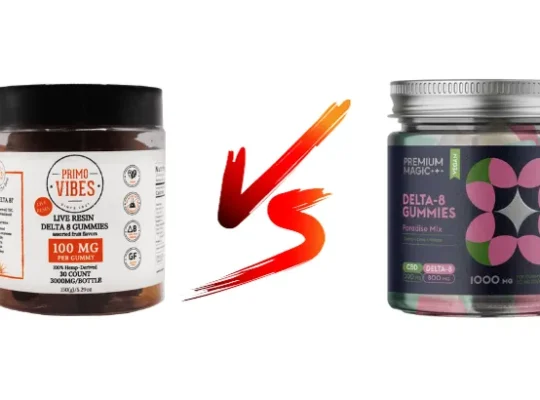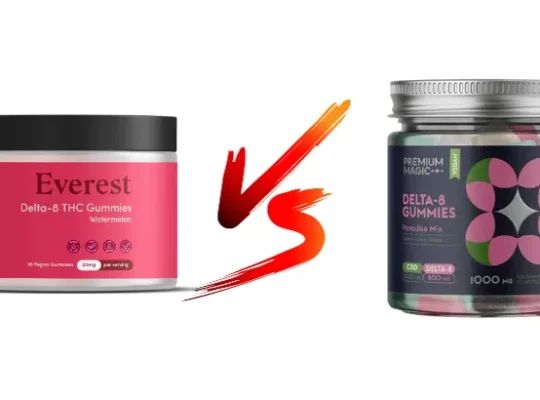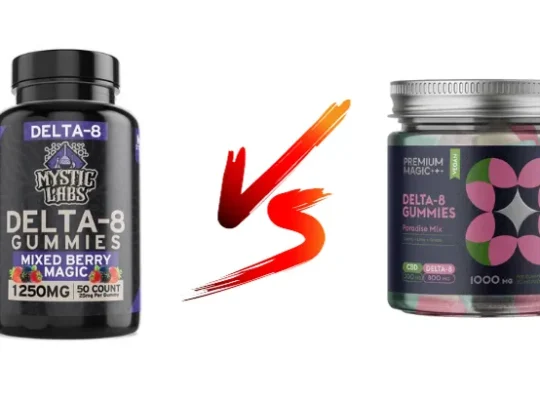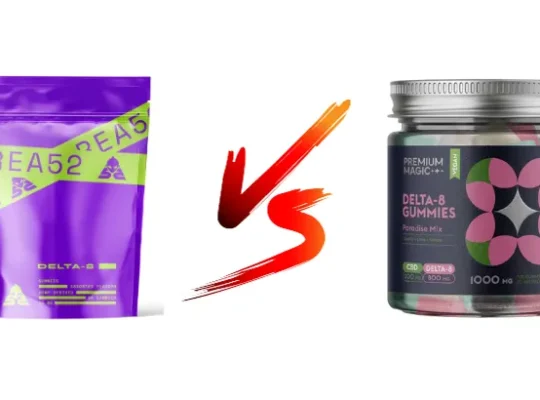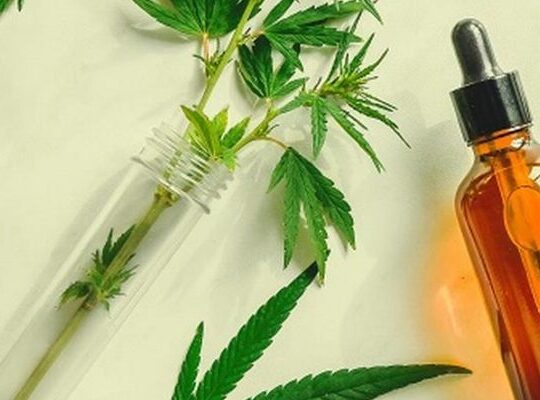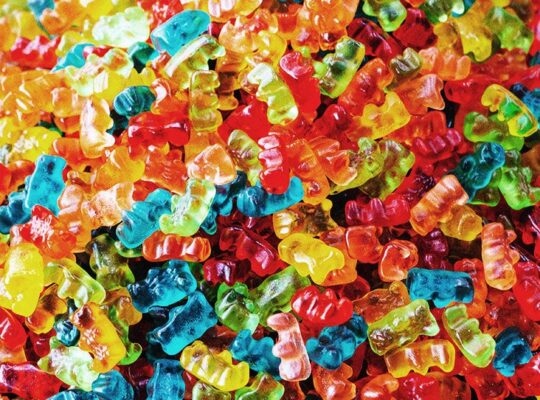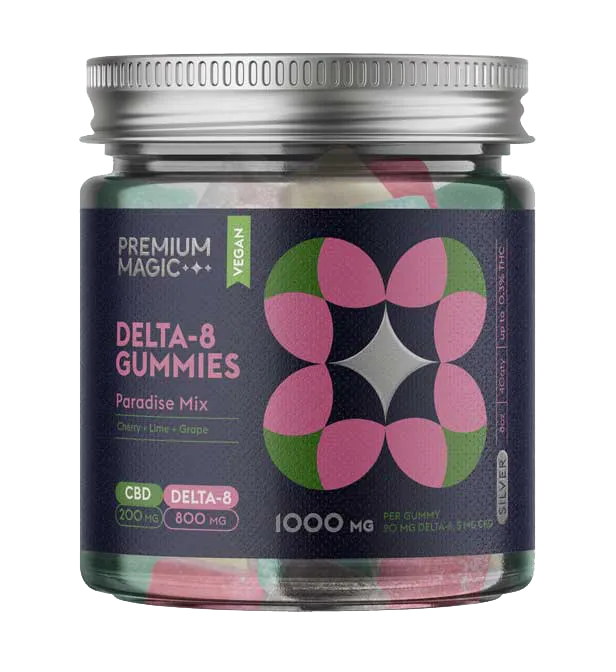
CBD vs THC are chemical substances found in the cannabis sativa plant, also known as marijuana. Although it is known in Brazil as an illicit drug, marijuana has chemical compounds that can be used in medicines and bring various health benefits, CBD and THC are examples. Due to their uses in human health, many people confuse CBD with THC. This is because despite diverging in several characteristics, they both have similar effects and can even be used together.
Table of Contents
CBD vs THC: THC
THC is a psychoactive substance found in cannabis sativa, marijuana. The acronym THC comes from the name tetrahydrocannabinol, or tetrahydro-cannabinol. However, its official name is 6,6,9-trimethyl-3-pentyl-6H-dibenzo [b,d]pyran-1-o, according to the rules of chemistry. This substance is found in the plant, mainly in the flowers and resin of female plants.
The concentration of THC in cannabis depends entirely on the quality of the soil, climate and time of harvest. Most of the effects of marijuana use are due to THC, due to its hallucinogenic properties and the ability to modify the brain activity of an individual. Tetrahydrocannabinol is responsible for the feeling of euphoria left by marijuana, as it comes into contact with the body and helps release dopamine. In some countries, including Brazil, the use of THC is regulated as a component of specific drugs.
CBD vs THC: CBD
Cannabidiol, on the other hand, is extracted from a species of cannabis that contains small amounts of THC. The effects of CBD are different from tetrahydrocannabinol, it does not cause the same euphoria. Like THC, cannabidiol is used in the preparation of medicines, some of them for the treatment of conditions such as epilepsy, Crohn’s disease, anxiety and muscle pain. Most products that contain cannabidiol also include a little THC. However, the amount is reduced. As not all people receive THC as well as CBD, drug packaging needs to point out the amount of tetrahydrocannabinol in their composition.
Differences between CBD vs THC
Both CBD and THC affect the endocannabinoid system, which plays an important role in maintaining homeostasis. More studies are needed on the subject, but experts believe that this system is associated with memory, appetite, sleep, mood and fertility. Despite some similarities, CBD and THC have their differences, check below:
- Chemical structure: CBD and THC have the same molecular formula (C21H30O2), but different arrangements of atoms. This makes them have different effects on the body.
- Psychoactivity: THC is a psychoactive substance that can alter mood, perception and behavior. CBD is not psychoactive and does not cause intoxication or euphoria.
- Legal status: THC is illegal in most countries and considered a controlled substance. CBD is legal in some countries and states where medical or recreational marijuana is allowed.
- Medical benefits: Both CBD and THC have therapeutic potential for various conditions, such as pain, inflammation, epilepsy, anxiety, depression and more. However, they may have different mechanisms of action and side effects.
Body effects of CBD vs THC
CBD and THC have their unique effects on the human body. The use of THC can cause euphoria, confidence and good mood. It can also cause extreme anxiety and paranoia, unlike CBD.
CBD can have calming and relaxing effects, as well as anti-inflammatory and neuroprotective properties. It can also counteract some of the negative effects of THC, such as memory impairment and increased heart rate.
Both CBD and THC can interact with other medications or supplements, so it is advisable to consult a doctor before using them.
Drug use
CBD and THC can be used in different ways for medical or recreational purposes. Some of the most common methods are:
- Smoking or vaping: This involves inhaling the smoke or vapor produced by burning or heating cannabis flowers or extracts. This method delivers fast and potent effects but can also harm the lungs.
- Edibles: These are foods or drinks that contain cannabis or its extracts. This method offers longer-lasting effects but can also take longer to kick in and vary depending on individual factors.
- Oils: These are liquid extracts that contain high concentrations of CBD or THC. They can be taken orally or sublingually (under the tongue). This method offers precise dosing but can also have delayed onset.
- Capsules: These are pills that contain cannabis or its extracts. They can be swallowed with water or food. This method offers discreet and consistent dosing but can also have slow absorption.
- Topicals: These are creams, lotions or balms that contain cannabis or its extracts. They can be applied to the skin for localized relief of pain or inflammation. This method does not produce psychoactive effects but can also have limited penetration.
- CBD gummies are a popular way to enjoy the benefits of cannabidiol (CBD), a natural compound found in hemp plants that may help with pain, anxiety, sleep, and more. CBD gummies are easy to use, discreet, and come in various flavors and potencies.
CBD side effects
CBD is generally well tolerated and safe, but it can also cause some side effects in some people, such as:
- Dry mouth;
- Drowsiness;
- Fatigue;
- Diarrhea;
- Changes in appetite or weight;
- Low blood pressure.
THC side effects
THC can cause more severe and varied side effects than CBD, especially at high doses, such as:
- Impaired memory and cognition;
- Altered perception and senses;
- Increased heart rate and blood pressure;
- Anxiety, paranoia or psychosis;
- Red eyes and dry mouth;
- Increased appetite and thirst;
- Dizziness and nausea.
Conditions that can benefit from CBD and THC
CBD and THC can help treat or manage several medical conditions, such as:
- Chronic pain: CBD and THC can reduce pain and inflammation by interacting with the endocannabinoid system and other receptors. They can also enhance the effects of opioids or other analgesics.
- Epilepsy: CBD and THC can reduce the frequency and severity of seizures by modulating the activity of neurons and neurotransmitters. They can also improve the quality of life of patients with refractory epilepsy.
- Multiple sclerosis: CBD and THC can improve the symptoms of multiple sclerosis, such as spasticity, pain, bladder dysfunction, sleep quality and mood. They can also reduce the progression of the disease.
- Anxiety and depression: CBD and THC can have antidepressant and anxiolytic effects by influencing the serotonin system and the endocannabinoid system. They can also improve the coping skills and resilience of patients with anxiety disorders.
- Cancer: CBD and THC can have anti-tumor effects by inducing apoptosis, inhibiting angiogenesis, modulating immune responses and enhancing the efficacy of chemotherapy. They can also alleviate the side effects of cancer treatment, such as nausea, vomiting, pain and cachexia.
The drug is not the same as the plant
It is important to note that the drug marijuana is not the same as the plant cannabis. Marijuana is a term used to refer to the dried flowers, leaves, stems and seeds of cannabis that contain varying amounts of THC and other cannabinoids.
Cannabis is a genus of plants that includes several species, such as Cannabis sativa, Cannabis indica and Cannabis ruderalis. Not all cannabis plants contain significant amounts of THC or CBD. Some varieties are cultivated for industrial or medicinal purposes, such as hemp, which has low levels of THC but high levels of CBD.
Drug test
CBD and THC can be detected in drug tests that measure the presence of cannabinoids in urine, blood, saliva or hair. The detection time depends on several factors, such as the type of test, the frequency and amount of use, the metabolism and body fat of the user, and the potency and quality of the product. Generally speaking, THC can be detected for longer periods than CBD.
For example, THC can be detected in urine for up to 30 days after chronic use, while CBD can be detected for up to 7 days. However, some drug tests may not differentiate between CBD and THC, which can lead to false positives. Therefore, it is advisable to inform the tester about the use of CBD or THC products before taking a drug test.

